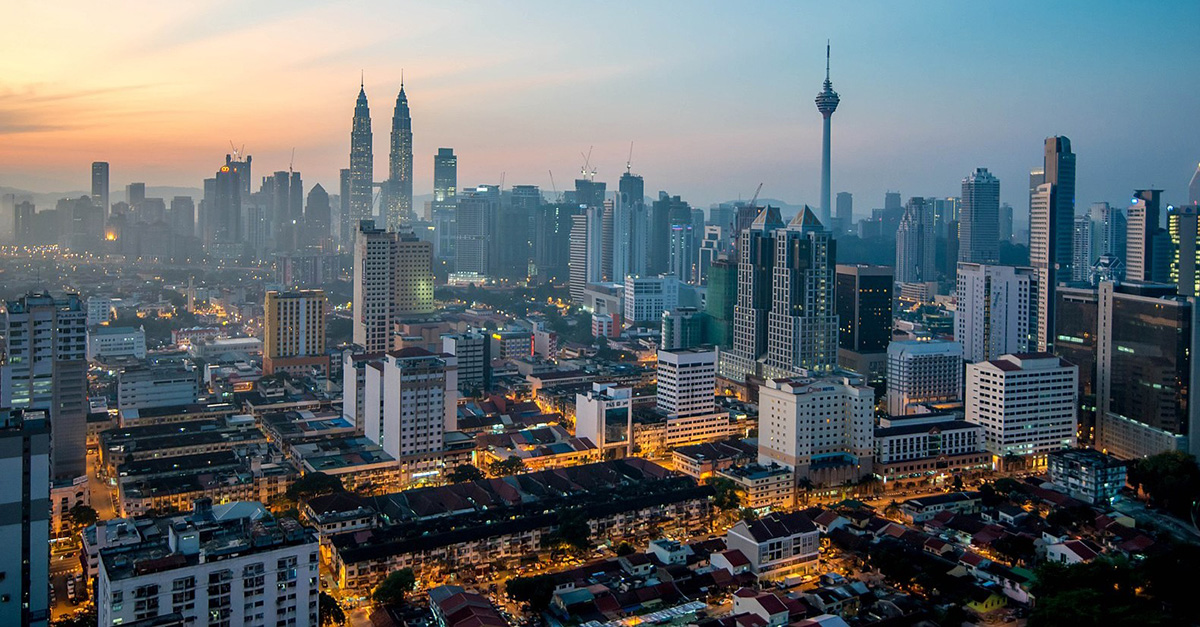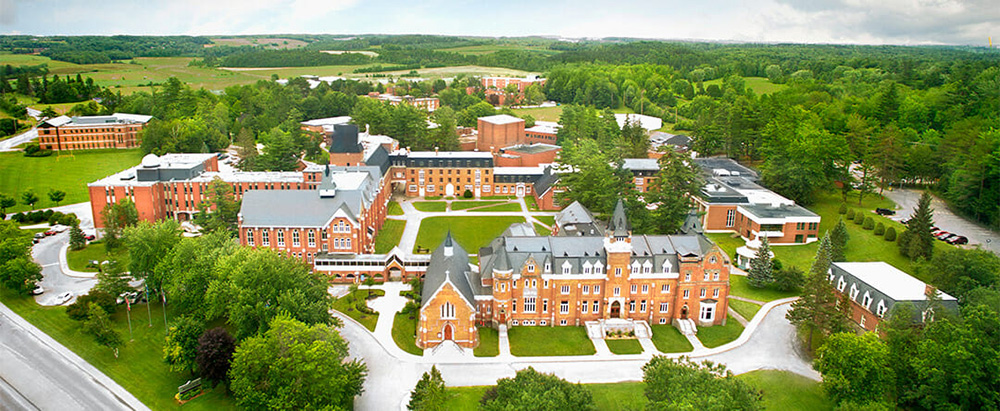It was time to escape. Amani had two helpers. The first picked her up in the middle of the night and started driving to Dubai’s airport. The second, halfway around the world in the United States, bought her a one-way ticket on the next flight to Kuala Lumpur.
Amani, Syrian with a Syrian passport, had grown up in the United Arab Emirates. And now, at age 19, she had decided to flee the only country she’d ever known, and her family.
That decision had roots in another. Over the previous 15 months she had come to reject Islam, the faith in which she’d been raised. Her thinking had evolved as she explored in the campus library of the university she had begun attending, and as she shared her thoughts on social media.
Her parents learned of her doubts, and pulled her from university in her second semester. They confiscated her phone and confined her to the house. Amani was physically abused, often by her brother, as her parents looked on. She has pictures of the bruises. A forced marriage was in the works.
“I was in extreme denial of what was happening, until suitors started to show up,” she says. “I couldn’t recognize my parents. I knew they were religiously conservative. But I did not expect them to be capable of that level of violence against someone they loved.”
And now, at last, she was making a run for it, destination Malaysia, a country which allows visa-free entry to Syrians.
But when Amani arrived at the airport, the airline refused to print her boarding pass. Anyone entering Malaysia requires a return ticket. She had planned to start a new life with $2,000 she had put aside. Now, though, there was no turning back, so she handed her savings to the agent.
“I had never flown by myself before,” she remembers. “Because it was last minute, the return ticket was very expensive. So there goes all of the money I had at the time. The friend who was with me just took whatever was in her purse and gave it to me.”
Malaysia was her escape hatch. But Amani dreamed of living and learning elsewhere, in Canada. So she would do everything she could to seek a spot in a Canadian university.
After months of trying, for a brief moment it seemed her wishes had come true. Instead, she was plunged into a frustrating and expensive run-around. Hers is a cautionary tale for international students who must convince Canadian authorities of their intentions before making good on tantalizing offers from schools here. The effort, for some, can not only drain them of money, but of hope.

Amani arrived to Kuala Lumpur in October 2015. Having fled abuse, imprisonment and persecution, she might fairly be considered one of some 26 million refugees seeking new lives around the world. But Malaysia does not recognize refugee status; it never signed the UN’s Refugee Convention, and refugees there have no right to work.
On her first day in the country, she sold both gold rings she had been gifted for high school graduation. An American benefactor, who knew Amani through an online support group for those leaving religion, sent money.
Amani scraped by as best she could with no job, living in sparse accommodations. Her parents expected her to come crawling back. She did not.
One day the Malay man who worked reception at the cheap hotel where she was staying offered Amani a place to stay at his family’s house, on the outskirts of the city. Amani would have to rush home at night before the sun went down, a stranger in a strange land, but otherwise it seemed like a stroke of timely luck.
A week passed before his true motives became clear. “It was raining. My stuff was in the street. My phone died and I had no money at all,” she recalls. “It was a low point. I always tell myself if I’ve made it through that night, I can get through anything.”
Amani found an office job in the shadowy economy that employs those in her situation. Three hard years later came what seemed to be wonderful news from a small university in Quebec.
She had emailed her story and high school transcript to every post-secondary institution in Canada. Many encouraged her to apply, indicating scholarship offers might follow. But international student applications can cost $150 each — money she simply did not have at the time.
Amani received a promising letter from Dan Seneker, then the director of enrolment at Bishop’s University in Sherbrooke, Quebec, saying that if she applied, she’d be eligible for a scholarship — $30,000 per year, renewable for four years — to pursue a bachelor of science in biochemistry.
Amani applied to Bishop’s on Dec. 8, 2018 and was quickly accepted. Much later, on April 6, 2019, she received the formal scholarship offer. That made it all seem real to Amani. “Until then it seemed too good to be true,” she says.
For the next two months, she worked on the application for a Canadian study permit. She also applied for the Québec Acceptance Certificate, and received it without complication.
But on July 4, Amani received a letter, from Canada’s regional Singapore office, notifying her that her application for a study permit had been rejected.
The Canadian visa officer who made the decision began with skepticism that Amani could keep up her grades. She needed an 80 per cent average to be considered for scholarship renewable and an 85 per cent average to guarantee it. They also cited Amani’s 8.0 score on the IELTS English language test— even though 9.0 is a perfect score. But their ultimate reason had nothing to do with measures of skill and intelligence.
“The PA [principal applicant] does not have a country to return to,” the visa officer’s notes conclude, “and as such I am not satisfied that the PA will be motivated to leave at the end of the authorized period of stay. Refused.”
Looking back, Amani believes Seneker didn’t have the full picture of the complexities she faced in gaining entrance to Canada. “I don’t think he understood at the time all of the things that come with granting a refugee a scholarship,” she says.
“I think he thought he would give the scholarship and everything would be sorted out. I mentioned in our first few correspondence emails that things would be different because I am a refugee here in Malaysia. I made him aware — because not everyone is in touch with visas for refugees.”
Bishop’s never offered Amani help or advice on how to obtain a study permit.
Asked for comment, Seneker wrote that many foreign students wanting to study in this country “receive mixed messages. ‘Come to Canada to study but you will be rejected for your study permit if there is a belief you won’t leave after your studies,’ compared to, ‘After you complete your studies you can stay, work and possibly immigrate.’”
But two organizations, International Students Overcoming War and Jusoor, in co-ordination with Canadian university administrators, have proven it is possible for Syrian passport holders to obtain Canadian study permits, despite the reality that they may not have a country to return to after graduation.
“ISOW has successfully brought Syrian students from Syria itself, as well as from Turkey, Lebanon and the United Arab Emirates. Each time we are sponsoring these individuals as students and not as refugees,” explains Gavin Brockett, an associate professor at Wilfrid Laurier and ISOW’s faculty advisor.
“We demonstrate these commitments by providing letters to confirm the bona fides of the ISOW scholarship program to be included in the visa application.”
“You need a collective mentality,” says Rana, a Syrian who came from Damascus through Jusoor, earning a master’s of engineering from York University. “There is this sense in the community of ‘We’re going to get it done.’”
At Bishop’s, though, the university “does not get involved in specific student’s CAQ and study permit applications,” wrote Seneker.
After Amani’s study permit application was rejected, Amani asked Bishop’s to defer her enrolment to January 2020, hoping the scholarship would be waiting for her if she could find her way to Canada, someway somehow.
“Unfortunately there is nothing we can do on our end,” Seneker wrote to her on July 9, 2019. “Please let us know if your situation changes.”

Only about three out of four applications by international students seeking study permit applications are initially accepted. Many complete the first application on their own and hire assistance if they are at first refused. Canadian visa offices are accustomed to this.
Bishop’s referred Amani to a list of firms who might help. Those she tried asked for big fees and made no guarantees. Instead of offering to submit a new application, which costs $180, one wanted at least $3,000, saying it would fight the decision in federal court — a hopeless gambit. The lawyer with the most affordable fees seemed eager at first, but soon ghosted her, says Amani.
“A lot of times, applicants don’t have representation,” explains Dani Willets, an immigration consultant with 25 years prior experience at Immigration, Refugees and Citizenship Canada. “So they haven’t put their best case forward. And it is easy to refuse a study permit, because no one challenges it at federal court.”
As she tried to navigate the bureaucracy, Amani concluded there was no way she could get around the visa officer’s ultimate point that she had no country to return to — a circumstance all refugees share.
Seneker wrote it is “always disappointing” when students are accepted but do not ultimately come. “However, we have faith in our governments and that they are making decisions based on what is best for the country and individual.”
But if Amani had no realistic chance at successfully obtaining a study permit without support from her would-be university, why offer her the scholarship at all?
In the end, Amani spent $1,934 in her failed effort to follow through with Bishop’s. Nearly $1,000 went directly into the university’s coffers — $120 to apply, $350 to reserve her spot in September classes (Bishop’s calls this “Confirmation of Attendance”), and $500 to secure her a place in on-campus housing.
It may not seem like a lot, particularly for the typical trust-funded international student. But for Amani it was.
“I have read many of their visa rejection letters and wanted to pull my hair out,” says Johanna Reynolds, former summer course co-ordinator for York’s Centre for Refugee Studies. “The logic was pretty similar to what Amani has received — ultimately that she won’t leave when her degree is done.”
“Canadian universities and colleges push hard to encourage international students as they bring in double, even triple the tuition compared to domestic fees," Reynolds continues. "Many international students also apply for PR and end up staying in Canada as Canadian-educated professionals. Yet Amani is not given this option, despite her scholarship.”
Amani submitted her second study permit application, without help, in December 2019, hoping to start school the following month.
Bishop’s emailed during that time — asking she send another $350 for January’s "Confirmation of Attendance." She decided to wait and see if she was again headed for a dead end. In fact, her second refusal arrived from Canada’s Singapore office in February.

Getting an education in the sciences remains Amani’s driving motivation. And in many ways she would fit in well among Canadian undergrads. Over lunch in a Kuala Lumpur mall, she eagerly discusses feminism, abortion, genocide, Islam, serial killers. Jordan Peterson even makes an appearance. “We should be able to talk about anything,” she says.
At some point in the past year, the United Nations High Commissioner for Refugees became aware of Amani’s tribulations and began the process of officially determining her refugee status.
An official interviewed her on February 3 and having found her credible, issued her UNHCR refugee certification March 17. That opened the door for a group of five Canadians to sponsor her.
But on that same day, Canada suspended all refugee arrivals due to the global pandemic, including those already approved.
And so, for now and for who knows how much longer, Amani gets by in Kuala Lumpur working around the edges of the formal economy. As she waits for another chance to study in Canada and move forward with her life, it’s like straining to see a horizon clouded from view.
So far, no date has been named for resuming Canada’s refugee sponsorship program. And every day, Amani tells herself not to lose hope. ![]()
















Tyee Commenting Guidelines
Comments that violate guidelines risk being deleted, and violations may result in a temporary or permanent user ban. Maintain the spirit of good conversation to stay in the discussion.
*Please note The Tyee is not a forum for spreading misinformation about COVID-19, denying its existence or minimizing its risk to public health.
Do:
Do not: